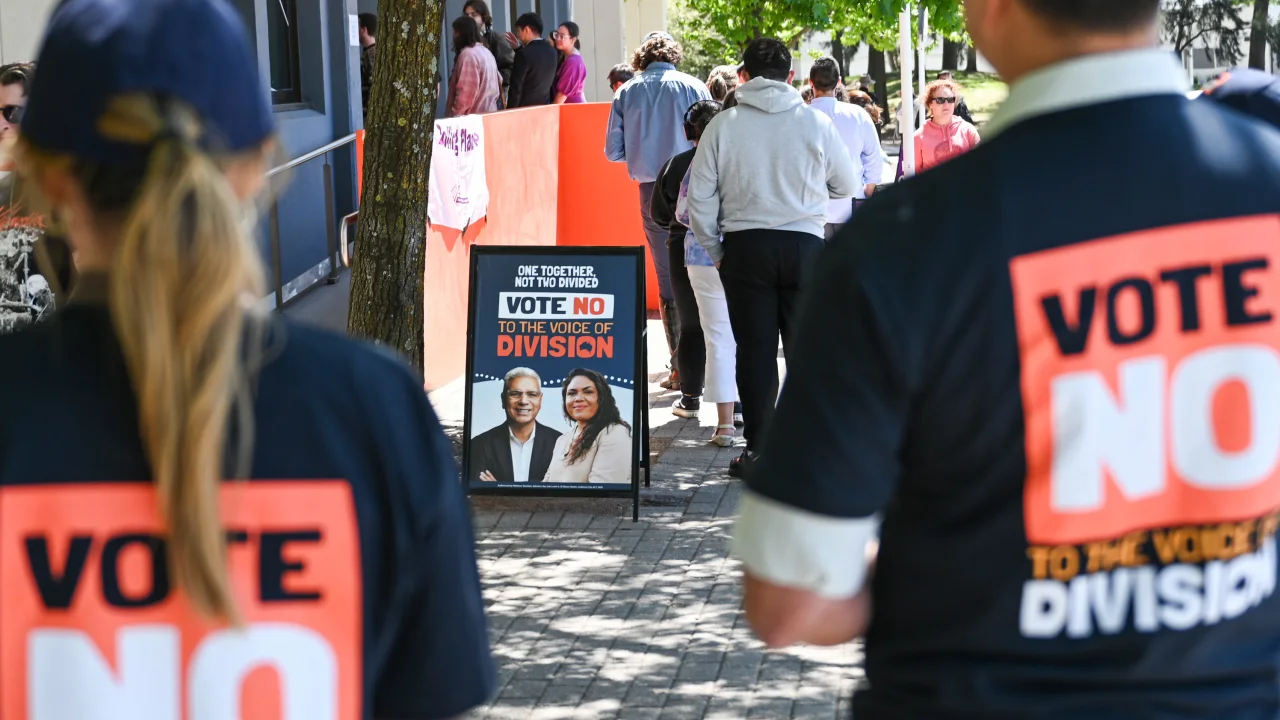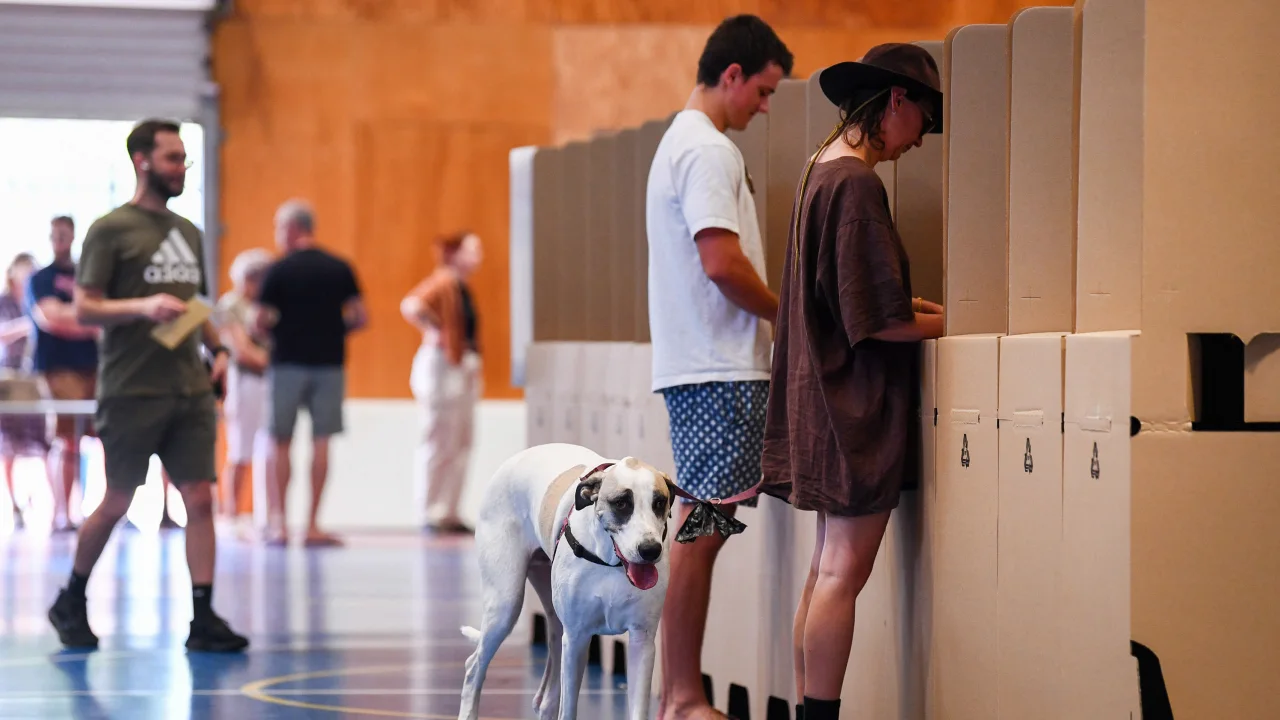Australians Reject Constitutional Reform For Indigenous Recognition
In a significant referendum, Australians reject constitutional reform for indigenous recognition that aimed to recognize Indigenous people and establish an Indigenous advisory body known as the "Indigenous Voice to Parliament."
Author:Suleman ShahReviewer:Han JuOct 15, 20231.7K Shares221.5K Views

In a significant referendum, Australians reject constitutional reform for indigenous recognitionthat aimed to recognize Indigenous people and establish an Indigenous advisory body known as the "Indigenous Voice to Parliament."
With most of the vote counted, it's evident that the "Yes" votes have fallen short of the required threshold.
The Referendum Results
Those opposed to the reforms led those in favor by a margin of 60 percent to 40 percent. What's notable is that almost all six states needed to be in favor of the proposal, but all but one voted to reject it.
The highest percentage of "yes" votes was registered in Victoria, with 46 percent, while Queensland saw the lowest, with only 32 percent supporting the reform.
Despite the referendum's failure, Prime Minister Anthony Albanese defended his decision to push for it.
“„We must seek a new way forward with the same optimism.- Prime Minister Anthony Albanese
“„Tonight is not the end of the road and is certainly not the end of our efforts to bring people together.- Prime Minister Anthony Albanese
He emphasized that this isn't the end of the road and pledged to continue efforts to unite people.
Indigenous citizens in Australia make up approximately 3.8 percent of the country's population of 26 million.
They have inhabited the land for some 65,000 years but are not mentioned in the constitution. This group continues to face disadvantages in various areas, including healthand housing.
Supporters of the proposal believed that adding an Indigenous voice to the constitution could help reconcile the country's historical injustices. However, opponents argued that it was divisive and ineffective.

Implications For Misinformation
Misinformation played a significant role in the lead-up to the referendum. A large campaign, mainly through social media, spread false information that the "Indigenous Voice to Parliament" would become a third chamber of parliament, leading to fears of increased federal funding for Aboriginal people.
“„This moment of disagreement does not define us. And it will not divide us. We are not yes voters or no voters. We are all Australians.- Prime Minister Anthony Albanese
“„It is as Australians together that we must take our country beyond this debate without forgetting why we had it in the first place. Because too often in the lifeof our nation, and in the political conversation, the disadvantage confronting Aboriginal and Torres Strait Islander people has been relegated to the margins.- Prime Minister Anthony Albanese
Prime Minister Albanese criticized sections of the media for steering the debate away from the core issues.
The rejection of this constitutional change represents the first such failure in Australia in 24 years, impacting the nation's First Nations people. While it signifies no constitutional change, the referendum's consequences will linger.
It is viewed as a rejection of reconciliation by Australia's non-Indigenous majority and tacit approval of a status quo that has failed Indigenous communities for centuries.
This outcome could deter future leaders from holding referendums, as it suggests that the bar for constitutional change may be too high.
The Australian people's role in deciding such changes is integral to the nation's constitution, and if it becomes common for referendums to fail, politicians may hesitate to propose them.
“„We have had, including in outlets represented in this room, discussions about a range of things that were nothing to do with what was on the ballot paper tonight.- Prime Minister Anthony Albanese
Final Words
While this referendum did not pass, it marks a pivotal moment in the ongoing journey of reconciliation and constitutional reform in Australia.
The path forward may be challenging, but it is crucial for the nation to address the historical and ongoing injustices faced by its Indigenous population

Suleman Shah
Author
Suleman Shah is a researcher and freelance writer. As a researcher, he has worked with MNS University of Agriculture, Multan (Pakistan) and Texas A & M University (USA). He regularly writes science articles and blogs for science news website immersse.com and open access publishers OA Publishing London and Scientific Times. He loves to keep himself updated on scientific developments and convert these developments into everyday language to update the readers about the developments in the scientific era. His primary research focus is Plant sciences, and he contributed to this field by publishing his research in scientific journals and presenting his work at many Conferences.
Shah graduated from the University of Agriculture Faisalabad (Pakistan) and started his professional carrier with Jaffer Agro Services and later with the Agriculture Department of the Government of Pakistan. His research interest compelled and attracted him to proceed with his carrier in Plant sciences research. So, he started his Ph.D. in Soil Science at MNS University of Agriculture Multan (Pakistan). Later, he started working as a visiting scholar with Texas A&M University (USA).
Shah’s experience with big Open Excess publishers like Springers, Frontiers, MDPI, etc., testified to his belief in Open Access as a barrier-removing mechanism between researchers and the readers of their research. Shah believes that Open Access is revolutionizing the publication process and benefitting research in all fields.

Han Ju
Reviewer
Hello! I'm Han Ju, the heart behind World Wide Journals. My life is a unique tapestry woven from the threads of news, spirituality, and science, enriched by melodies from my guitar. Raised amidst tales of the ancient and the arcane, I developed a keen eye for the stories that truly matter. Through my work, I seek to bridge the seen with the unseen, marrying the rigor of science with the depth of spirituality.
Each article at World Wide Journals is a piece of this ongoing quest, blending analysis with personal reflection. Whether exploring quantum frontiers or strumming chords under the stars, my aim is to inspire and provoke thought, inviting you into a world where every discovery is a note in the grand symphony of existence.
Welcome aboard this journey of insight and exploration, where curiosity leads and music guides.
Latest Articles
Popular Articles